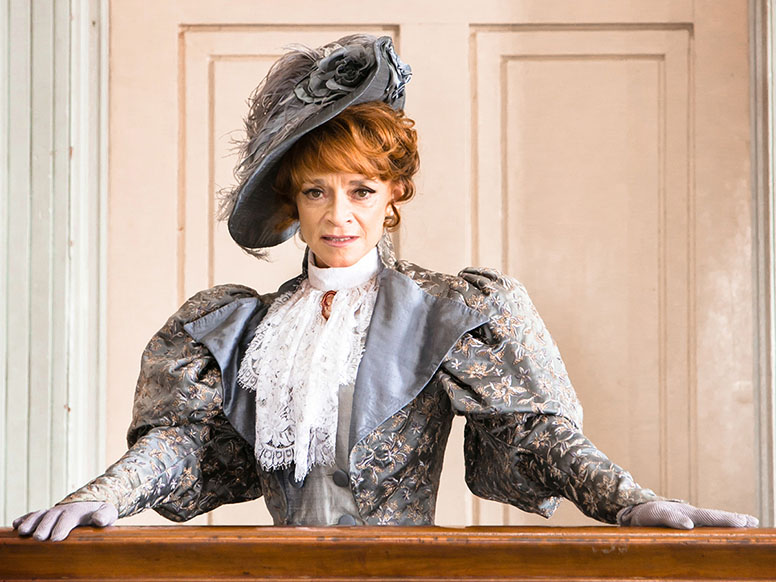As Mrs Warren’s Profession prepares to take to the Cambridge stage, we talk to director Paul Milton about this play with a saucy but essentially serious subject at its heart. A sharp critique on Victorian society and the role of women, it centres on a young woman who discovers that the money which has funded her university education was made by her mother running a series of successful brothels.
Q: This play was written in 1893 but not performed until 1925 because of its controversial subject matter. Why produce it now?
A: First of all, I think it’s really important not to lose these great plays – plays by Ibsen, Chekhov, Shaw and Strindberg – that were instrumental in kick-starting the theatre of reality. So much drama that we have now, especially television and film, is based on that, and I think there’s not enough of that repertoire being seen round the country. This is hugely important in terms of the way drama has progressed. It needs to be seen.
Q: What makes Mrs Warren’s Profession a great play?
A: George Bernard Shaw has this fantastic mind. He’s got a point to prove – which he does in the play – but then around that huge idea he creates a wonderful story. If we’re not careful, we look at Shaw and go, “Here’s a man with an axe to grind and a socialist point of view to put across.” But we mustn’t forget that he was hugely important. This is a play about the empowerment of women, women’s rights, women in employment, and you would assume that a hundred years later women are being represented in the boardroom and in the workplace, and we know that statistically they’re not.
Q: Which leads me on to my next question – what does it have to say to a modern audience?
A: One thing we’re not going to do with this play is update it. We’re setting it firmly when it was written. Look at what was happening at the end of the Victorian era in terms of society and class and women’s rights, and now look at where we’ve got to. We went through all of the 1950s and 60s and trades unions and the Labour Party movement, and now look where we are today. I read the papers and I see things like zero hours contracts and I think it’s got such a resonance. It says to me that we never really learn, do we?
Q: How much are you asking of the audience to draw those comparisons?
A: Actually, Bernard Shaw does it for us. Sometimes he’s very graphic. There’s a speech in the play in which George Crofts talks about his brother getting 22 per cent out of a factory with 600 girls in it and not one of them is getting wages enough to live on. That’s absolutely spelt out to the audience.
Q: What’s going to be different about this production?
A: We’re going to be absolutely true to the text, because it is a fantastic text and he’s a brilliant wordsmith and he knows exactly what he’s saying. What we’re trying to do is concentrate on the human story that generates Shaw’s opinion. He spent his entire life refining and defining his political and socialist viewpoints, and I suspect that his starting point always was his socialist ideals, but what he’s able to do is to create some great dramatic coups de théâtre around those and some real cliffhangers along the way.
Also, the music in the production is music that Bernard Shaw himself might have critiqued – because, of course, he was a music critic. So we’re using some Wagner and some Elgar – he knew Elgar very well. Dawn Allsopp, our designer, has come up with a fantastic design for the show. We are starting off the play with a design that looks like a Victorian postcard, and as the relationship between mother and daughter disintegrates, we’re going to bleed all the colour from the design, so that at the end of the play you’re left with greys and blacks.
Q: Tell me about the casting…
A: It was not difficult for us to cast this play because already I was aware of and know the work of Sue Holderness. She’s such a useful and very versatile performer. Christopher Timothy I’ve seen in a number of plays that have toured to the Cheltenham Everyman, and as he’s got more mature I think he’s become a really interesting performer. We’re casting slightly outside type with both of them but they’re both experienced enough and established enough to serve the play.
Q: Even though it’s never actually mentioned in the play, Shaw had lots to say about prostitution, didn’t he?
A: Loads to say about it. It’s interesting, isn’t it, that if you think back a hundred years it had to be kept a secret that this woman had made a lot of money out of running a string of brothels. Today, I wonder whether we’d say, “Good on her.” Even though it might be greeted with disdain, I think it might secretly be admired nowadays.
Mrs Warren’s Profession is at Cambridge Arts Theatre 21-25 July, 7.45pm. Tickets from £15.

